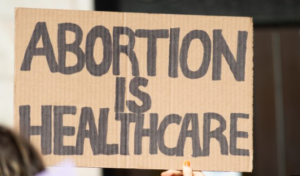
|
Getting your Trinity Audio player ready...
|
Do you have questions about safe and accessible abortion services in the US? Or do you need help finding a clinic? Abortion rights are always under attack. This can leave individuals feeling isolated, uninformed and confused as to what their rights are. And even if they know their rights, it still doesn’t guarantee access to safe abortion services.
To make sure everyone has equal access to healthcare services, this guide provides information on finding a clinic, understanding the laws that apply in your state and what is required for those seeking legal abortion services. Whether you’re looking for affordable care or want to know your options within the rule of law, this guide will offer all the resources you need.
What are the legal requirements for abortion in the US? 
The legal requirements for abortion vary from state to state. Some states have laws that restrict access to abortion services, while others have no restrictions. It is important to check with your local clinic or health department to make sure you understand your state’s laws and regulations before seeking an abortion.
How can I find a safe and affordable clinic?
There are many resources available online to help you find a safe and affordable clinic near you. The National Abortion Federation (NAF) website has a list of clinics that provide abortions throughout the US. Additionally, Planned Parenthood provides information about its clinics and services. If you need assistance finding a clinic in your area, contact NAF or your local Planned Parenthood for more information.
What are the risks associated with abortion?
Abortion is a safe and common procedure, but like any medical procedure, it does carry some risks. Some of the potential risks include infection, bleeding, pain, and damage to internal organs. It is important to speak to your doctor or healthcare provider before undergoing an abortion so they can assess your individual health needs and discuss any potential risks with you.
Are there any financial assistance programs available to help cover the cost of an abortion?
Yes, there are a variety of financial assistance programs available to help cover the cost of an abortion. The National Abortion Federation (NAF) provides funding to those in need through its Abortion Access Fund. Additionally, many states provide resources for individuals seeking affordable access to reproductive health services such as abortion. Contact your local Planned Parenthood or NAF clinic for more information on available resources.
Is there any resource available to answer questions about abortion?
Yes, there are a variety of resources available to answer questions about abortion. The National Abortion Federation (NAF) provides a hotline that offers free, confidential advice and information on abortion and reproductive healthcare. Additionally, Planned Parenthood has a website with comprehensive information about abortion and other reproductive health services. For more information or for help finding a clinic, contact your local NAF or Planned Parenthood office.
What should I expect when visiting a clinic for an abortion?
When visiting a clinic for an abortion, you can expect to have a consultation with a healthcare provider who will discuss your medical history and any potential risks associated with the procedure. You may also be asked to take a pregnancy test and undergo an ultrasound. During the consultation, you will also be provided with information about the procedure, including any possible side effects or complications. Lastly, you will be given instructions on what to do before and after the procedure.
What are the GPAS guidelines for providing safe abortion services?
The Guidelines for Providing Abortion Services (GPAS) provide a set of standards and best practices to ensure that abortion care is provided in a safe, effective, and appropriate manner. The GPAS outlines standards for patient safety, quality of care, informed consent, and legal requirements. Additionally, the GPAS guides how to handle difficult situations such as cases involving minors or multiple gestation.
The Bottom Line.
Abortion is a safe and common procedure, but it is important to speak to your doctor or healthcare provider before undergoing an abortion so they can assess your individual health needs and discuss any potential risks. There are a variety of financial assistance programs available to help cover the cost of an abortion. Additionally, there are many resources available to answer questions about abortion, such as the National Abortion Federation (NAF) hotline or the Planned Parenthood website. When visiting a clinic for an abortion, you can expect to have a consultation with a healthcare provider and be provided with information about the procedure. Lastly, the Guidelines for Providing Abortion Services (GPAS) provide standards for patient safety, quality of care, informed consent, and legal requirements for providing safe abortion services.
